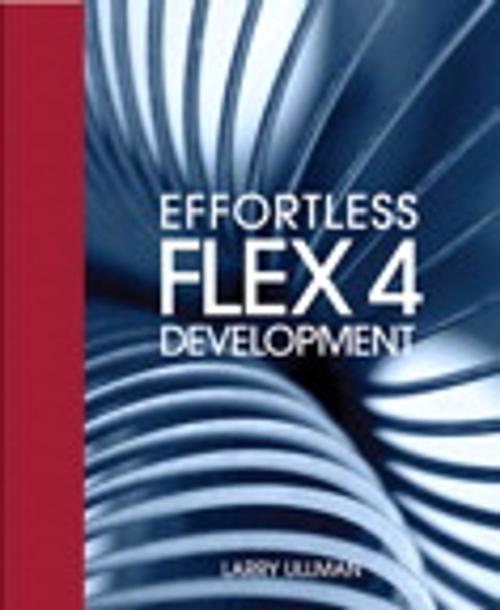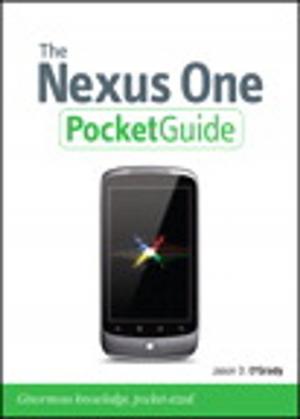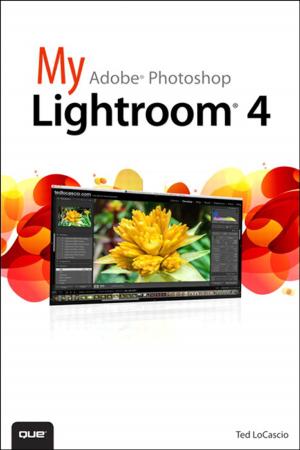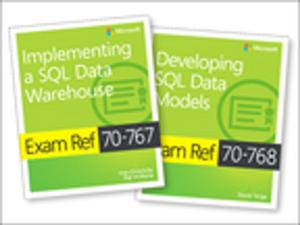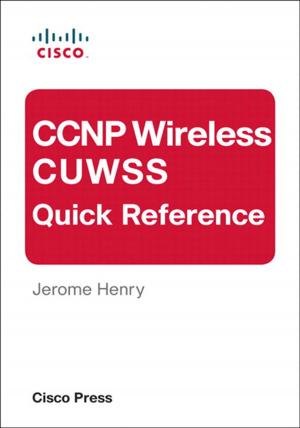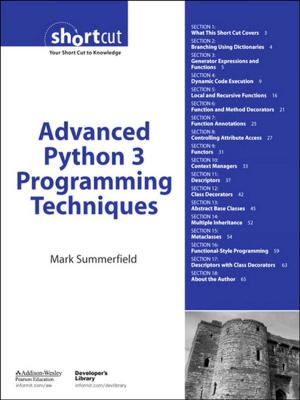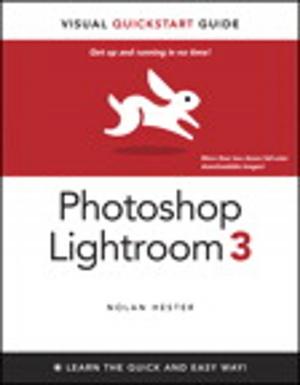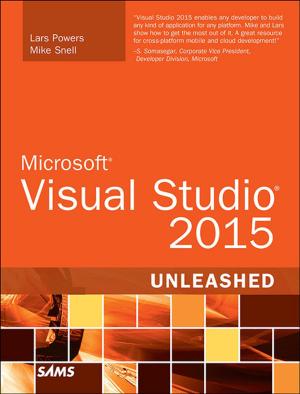| Author: | Larry Ullman | ISBN: | 9780131389489 |
| Publisher: | Pearson Education | Publication: | June 23, 2010 |
| Imprint: | New Riders | Language: | English |
| Author: | Larry Ullman |
| ISBN: | 9780131389489 |
| Publisher: | Pearson Education |
| Publication: | June 23, 2010 |
| Imprint: | New Riders |
| Language: | English |
First the Web was all static content (HTML). Then as more was expected of sites, server-side technologies like PHP became necessary. But now Rich Internet Applications (RIA) put a lot of the functionality back in the Web browser, so a server-side technology alone will no longer suffice. Developers who have been doing server-side work for years need to broaden their horizons to provide a rich client-side experience. Enter Effortless Flex 4 Development by bestselling author Larry Ullman.
Flash-Flex is a powerful duo for providing a rich, client-side experience. The first third of this book covers the fundamentals of creating Flex apps. The second third is about getting, displaying, validating, and sending data: locally, remotely, and from the user. All server-side code in this book is PHP, and this data-centric view and larger support for PHP is a key focus in Flex 4. The last third is about rounding out the know-how for full application development.
Taking advantage of what Flex 4 has to offer, developers can quickly learn how to create RIAs, some of which interact with PHP scripts running on the server. Adobe has open-sourced Flex and made its SDK freely available, so it is becoming more attractive to developers who prefer open-source projects over commercial ones. Since the author is writing this book as a developer/programmer for other developers/programmers (as opposed to a designers), there is a predominance of how-tos and real-world practices.
Flash-Flex is a powerful duo for providing a rich, client-side experience. The first third of this book covers the fundamentals of creating Flex apps. The second third is about getting, displaying, validating, and sending data: locally, remotely, and from the user. All server-side code in this book is PHP, and this data-centric view and larger support for PHP is a key focus in Flex 4. The last third is about rounding out the know-how for full application development.
Taking advantage of what Flex 4 has to offer, developers can quickly learn how to create RIAs, some of which interact with PHP scripts running on the server. Adobe has open-sourced Flex and made its SDK freely available, so it is becoming more attractive to developers who prefer open-source projects over commercial ones. Since the author is writing this book as a developer/programmer for other developers/programmers (as opposed to a designers), there is a predominance of how-tos and real-world practices.
First the Web was all static content (HTML). Then as more was expected of sites, server-side technologies like PHP became necessary. But now Rich Internet Applications (RIA) put a lot of the functionality back in the Web browser, so a server-side technology alone will no longer suffice. Developers who have been doing server-side work for years need to broaden their horizons to provide a rich client-side experience. Enter Effortless Flex 4 Development by bestselling author Larry Ullman.
Flash-Flex is a powerful duo for providing a rich, client-side experience. The first third of this book covers the fundamentals of creating Flex apps. The second third is about getting, displaying, validating, and sending data: locally, remotely, and from the user. All server-side code in this book is PHP, and this data-centric view and larger support for PHP is a key focus in Flex 4. The last third is about rounding out the know-how for full application development.
Taking advantage of what Flex 4 has to offer, developers can quickly learn how to create RIAs, some of which interact with PHP scripts running on the server. Adobe has open-sourced Flex and made its SDK freely available, so it is becoming more attractive to developers who prefer open-source projects over commercial ones. Since the author is writing this book as a developer/programmer for other developers/programmers (as opposed to a designers), there is a predominance of how-tos and real-world practices.
Flash-Flex is a powerful duo for providing a rich, client-side experience. The first third of this book covers the fundamentals of creating Flex apps. The second third is about getting, displaying, validating, and sending data: locally, remotely, and from the user. All server-side code in this book is PHP, and this data-centric view and larger support for PHP is a key focus in Flex 4. The last third is about rounding out the know-how for full application development.
Taking advantage of what Flex 4 has to offer, developers can quickly learn how to create RIAs, some of which interact with PHP scripts running on the server. Adobe has open-sourced Flex and made its SDK freely available, so it is becoming more attractive to developers who prefer open-source projects over commercial ones. Since the author is writing this book as a developer/programmer for other developers/programmers (as opposed to a designers), there is a predominance of how-tos and real-world practices.
